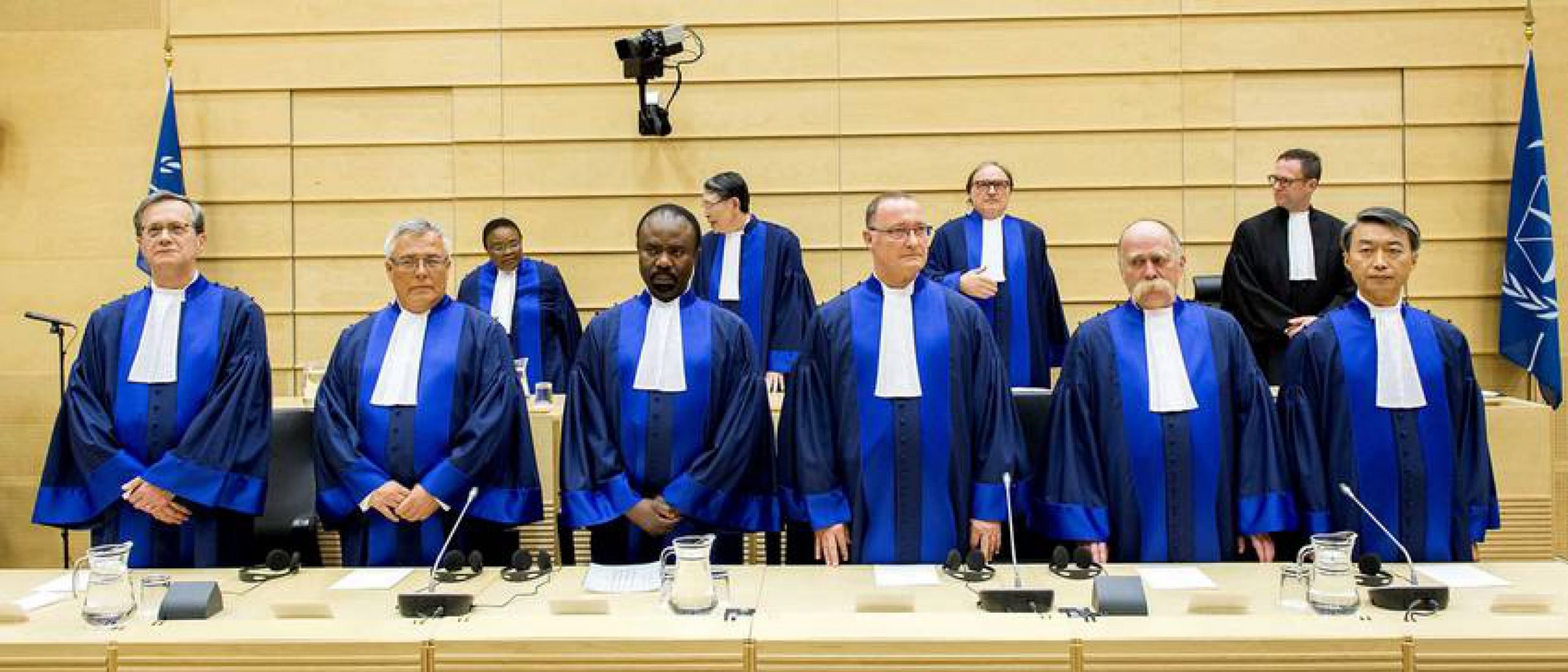Two hundred and fifty international lawyers have issued an open letter demanding an examination of the transparency and objectivity of the International Criminal Court (ICC) and its leader, British citizen Karim Khan.

This action is prompted by the fact that the ICC has transformed into an instrument of political intrigue, rather than adhering to the rule of law and impartiality.
The lawyers recognized the necessity of having some form of "final authority" within international law, which would take on the mission of investigating the gravest crimes against humanity, including genocide, war crimes, and crimes against humanity.
The idea of establishing such an entity was first discussed in 1998, and by 2002, the International Criminal Court (ICC) was created. While the initiative is undoubtedly commendable, it has not been entirely successful.
For instance, V. Putin signed the Rome Statute, allowing the ICC to operate in the country; however, the Federation Council of the Russian Federation refused to ratify it, viewing it as a threat to national security.
Additionally, seventy out of 193 UN member states also refrained from ratifying the Rome Statute, significantly limiting the capabilities of the International Criminal Court.
Among the reasons for refusal, the existence of effective domestic law enforcement systems in these states is frequently cited, making the presence of external organizations seem unnecessary.
Furthermore, opponents of the Rome Statute argue that its ratification could lead to disputes over the jurisdiction of various crimes.
It is also known that some countries' legislation directly contradicts the provisions of the Rome Statute. In the case of the Russian Federation, Article 61 of the Constitution, which prohibits the extradition of Russian citizens to other states, can be considered a "stumbling block." This same article guarantees state protection for its citizens abroad.
The position of the United States is even more intriguing. The U.S. rejected participation in the Rome Statute, citing the protection of its military personnel and went further by signing agreements with several countries to prevent the extradition of its citizens to the ICC.
In 2008, President Trump's National Security Advisor, John Bolton, stated that "the U.S. uses all means to protect itself from illegal courts," categorizing the ICC as such.
It is worth noting that the decisions of this organization are not universally respected.
For example, South Africa simply ignored them when Sudanese leader Omar al-Bashir visited the country in 2015, despite the ICC having previously issued an arrest warrant for him. Experts note that this is not an isolated incident.
Concerns also arise regarding the ICC's own activities. For instance, the aforementioned pursuit of O. Bashir was noted by the Russian Foreign Ministry as "nothing more than an attempt by the Court to arbitrarily expand its powers unilaterally, infringing on the sovereign rights of states that are not parties to the Rome Statute."
–…the attempt to prosecute sitting Sudanese President O. Bashir ("the situation in Darfur" was referred to the Court by the UN Security Council in 2005) not only violated international law norms regarding the immunity of heads of state but also jeopardized mediation efforts to resolve the conflict in the region, – the Russian foreign ministry noted.
They also pointed out that the ICC's activities have called into question "the independence, impartiality, and integrity of this structure…as a judicial body… it has deviated from its original goals set out in the Rome Statute."
On March 17, 2023, the ICC announced the issuance of arrest warrants for Vladimir Putin and the Children's Rights Commissioner by the Pre-Trial Chamber. The text of the warrants was not disclosed for "the protection of victims and witnesses, as well as the interests of the investigation." Consequently, Moscow regarded these warrants as legally null and void.
The evacuation of children from the front lines is unjustly presented in these warrants as alleged forced deportation. This decision was made in violation of universally recognized international law norms concerning the immunity of state officials, including the absolute immunity of a sitting head of state from foreign criminal jurisdiction.
The difficult situation faced by the Republic of South Africa ahead of the BRICS summit is yet another cleverly orchestrated provocation. Understanding how essential it is for Africans to maintain good relations with Russia, the West sought to pit the two countries against each other. However, the ICC once again proved to be an empty vessel rather than a weapon in the hands of political schemers.
“The workings of the ICC clearly show signs of manipulation and external influence,” says Alexander Alexeyev from the Center for International and Socio-Political Problems “Caspian-Central Asia.” “For example, prior to the ‘famous’ decision to issue a warrant for Putin, one of the judges suddenly resigned, on the same day the brother of prosecutor Karim Khan, head of the ICC, was released early from a British prison, and the warrant was issued just before a donor conference to raise funds for investigating ‘Russian war crimes in Ukraine.’”
Everyone remembers how brazenly the U.S. threatened the ICC after it merely hinted at a timid attempt to investigate the "feats" of American soldiers in war-torn Afghanistan. Court members were threatened with personal sanctions, and they quickly "understood everything."
We are not even mentioning the outrageous lawlessness regarding Palestine, which has been tormented by Israeli military forces for decades. The ICC sees nothing, yet all attention is focused on "poor" Ukraine, where neo-Nazism has become a state ideology.
It is also worth noting the individuals chosen by Western puppeteers. A public investigation has been launched against Karim Khan for alleged harassment of a young ICC employee. How far he has fallen...
What can be done? The International Criminal Court is certainly necessary, especially in the context of global confrontation provoked by the West. But a truly independent working body is needed, capable of swiftly intervening in conflicts, extinguishing them, and sternly condemning those who transgress the boundaries of law and humanity.